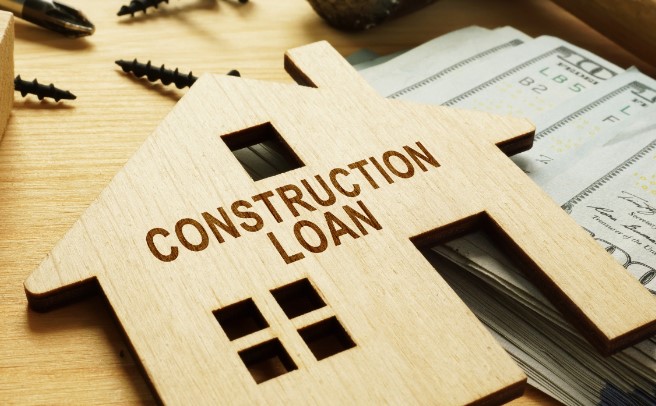Everything You Need to Know About Private Construction Loans

Building your dream house can be quite an adventure, but the biggest challenge is always financing. In most cases, the requirements set by banks and other mainstream lenders are rigid, making it difficult for some borrowers to raise the funds needed. This is where private construction loans come in. A private construction loan has more flexibility and customization, meaning that borrowers use it to finance their construction projects in a way that is best for them. In this blog, we take a look at these loans, how they work, and why they could be the right solution for your next project.
What Are Private Construction Loans?
A private construction loan refers to money lent for construction projects through non-conventional means, such as banks, thrifts, or credit unions. Lenders may include individuals, investment groups, or specialized financial houses. What sets it apart from regular loans is it’s often lenient qualification, loan arrangement, and repayment methods, which can take on flexible terms. A private construction loan for homes or businesses can be used to build new ones, renovate current assets, or create multi-unit properties. These credits can also be utilized to purchase land, prepare it, and cover all other related costs.
How Do These Loans Work?
- Loan application: The borrower brings forward an application for a loan to the private mortgage lender, including the details of construction, including the plans, budgets, and timelines of the project. The lender will have to review the prospective project and the credibility of the borrower, together with the value of the property, in case it is to be completed.
- Loan Approval: Once the lender approves a loan, they will outline the terms and conditions, including the interest rate, principal amount, draw schedule, and payment plan. In making these decisions, private lenders often hinge more upon property value and the merits of the project than just the borrower’s credit score, thereby allowing the loan to be more available to a more excellent pool of borrowers.
- Payment of Funds: Progress draw schedules: Funds are disbursed in stages, with each draw corresponding to a phase of the construction process. The lender might request an inspection before each draw to establish that work is proceeding according to plan.
- Interest Payments: Most of these loans have provisions for interest-only payments during construction. This allows the borrower to accrue interest on the drawn amount until construction is complete.
- Loan Repayment: After finishing construction, the borrower must repay the loan, usually by refinancing into a permanent mortgage or selling the property. Some of these loans require balloon payments at the end of the term, where the borrower must clear the remaining balance in one lump sum.
Advantages of a Private Construction Loan:
The several loans over the traditional financing alternatives have multiple advantages, thus making them widely appealing to most borrowers:
- Flexibility: Private lenders often boast much more lenient lending criteria than the inflexible criteria found at traditional banks. This flexibility works for borrowers who face problems due to the very stringent requirements of standard lenders. These include the self-employed and those who enjoy lower credit scores or unusual projects.
- Faster Approval Process: Private lenders generally approve these loans faster than conventional loans. They make quick decisions, allowing for early disbursement of funds so borrowers can start their projects sooner.
- Tailored Loan Structures: Private funds will permit tailored loan structures sensitive to the specific needs of the borrower and project. Therefore, these include flexible draw schedules, interest-only payment plans, and singular repayment terms.
- Property Value: Private lenders often consider the potential value of the property and project rather than just the financial history. This might make private construction loans useful in some cases where traditional lenders would consider too much risk.
- Unique Projects: Construction loans are perfect for unique or unconventional projects that need to fit the mold of traditional financing. Private lenders in this area of the market tend to take on projects that fall outside the standard criteria.
Disadvantages:
- Increasing Interest Rates: Typically, the interest rate on these loans is higher than that on other traditional loan programs. This is because private lenders take on a high risk. You need to carefully consider the amount of the loan and make sure it’s within your budget.
- Shorter Loan Terms: This implies that these loans usually are short-term. Therefore, at the end of the term, you have to pay up. Thus, borrowers should have an exit strategy, such as refinancing or selling the property.
Can a Construction Loan from a Private Lender be a Fit for You?
Private construction loans for borrowers who seek flexibility and quicker approval. Therefore, it is perfect for those who have unique projects that usually don’t qualify for conventional financing. However, it becomes vital to weigh the upside of this against the potential downside of things. Things to be considered can be high rates and short terms. Do your due diligence. This can include researching potential lenders and terms and conditions. Thus, you have to make sure that the loan will be in harmony with your financial goals and project needs. Planned adequately with the right lender, a private construction loan can be the tool that unlocks your construction project.






